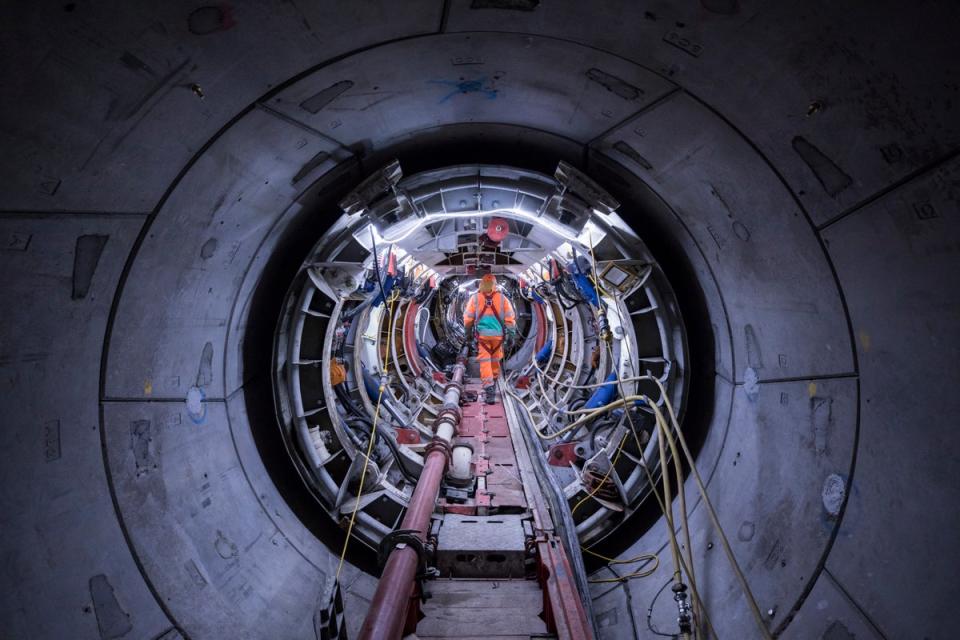London’s £5 billion super sewer finally completed after eight years

Construction of London’s £5 billion super sewer has finally been completed after eight years of work.
The final leg of work on the Thames Tideaway Tunnel was officially completed on Wednesday as a 1,200 tonne concreate lid was placed onto a shaft in East London
Work on the tunnel began years ago in an attempt to tackle the amount of raw sewage flowing through the capital’s river.
Running from Acton in West London to Stratford in East London, the 25km stretch of tunnel has been built 67m below the capital and will prevent around 95 per cent of sewage pollution.

It has taken 20,000 people eight years to build, costing £5 billion, and is one of the largest engineering projects the capital has seen in recent years.
Using a purpose-built gantry crane the giant 24m wide circular concrete lid was lifted into place over the course of around 5 hours on Wednesday morning.
Upon the completion of the construction Tideway CEO Andy Mitchell said: “This is the moment we’ve all been waiting for. The underground civil engineering on the Tideway project is now complete following eight years of dedicated hard work from all our teams working in the capital.
“There is still work to do – we need to finish some above-ground structures and, crucially, test the system – but this nonetheless marks an absolutely critical milestone for the Tideway project and for London.”

Following the successful delivery of this final milestone, Tideway will begin the process of ‘commissioning’ the system – ensuring the new infrastructure functions as designed – before looking ahead to bringing it into full operation in 2025.
Tideway is distinct from but funded by Thames Water, with its 15 million customers paying through their bills for the giant sewage pipe.
The tunnel is designed to last 120 years, but CEO Andy Mitchell said previously that it will probably still be in use after two or three centuries.
London currently uses a combined sewage system that handles human waste and rain runoff together, however, it is widely thought that it cannot handle the city’s current population.
The new super sewer will mean that instead of wastewater overflowing into the Thames, sewage overflows will be stored in the tunnel until it can be processed.
The first sewage is expected to flow into the tunnel this summer.


